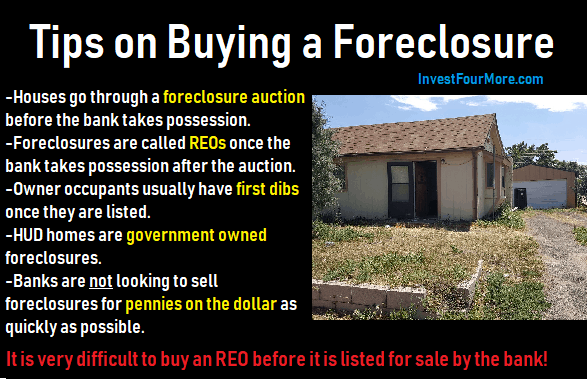
If you want to maximize your returns from real estate investing, here are a few tips you should follow. Continue reading to find out more about the different types of properties that you can invest in. The article will also address the importance asset protection, location, and refinancing properties. These tips will help you maximize your investment success. This article will help you if your first investment or if multiple properties are in your future.
Investment properties
What makes real estate investment properties appealing for investors? Your personal goals, the market you are in, and your preferred strategy for investing will determine your answer. These questions are not easy to answer. It is important to weigh the pros and cons for each investment option. You should also consider the location of your investment. Investors who live in emerging markets may be more open to investing in vacant land. Those who live in mature markets may be more keen on residential properties.

Asset protection
There are several strategies that you can use to protect your assets if you're serious about real estate investing. While most real estate investors will use landlord insurance and conservative amounts of debt, holding real property in an LLC or trust can increase your asset protection. You should also consider how much equity you've built up in your properties. Ultimately, the best strategy will depend on your goals, investments, and risk tolerance.
Lage
Real estate investing depends on location. This will impact the return on your investment. Even though less expensive properties may not be as lucrative than those that are more costly, it is vital to look at the neighborhood. Some neighborhoods are vibrant, while others may not make the best investments. Consider the area's affordability and job market to determine whether it is the right investment for you. Be sure to thoroughly inspect the property before you make a decision.
Refinance existing property
Refinancing existing properties for real-estate investors allows you to take advantage of lower interest rates and lowered monthly payments to maximize your investment. Refinancing your existing properties allows you to use the equity built in the property to improve it or to finance other investment properties. The refinance can offer tax deductions so it's a good option for investors. It involves many steps. Here's how to get started:

Manage your own portfolio
You have many options when it comes to building your real estate portfolio. The right asset allocation will depend on your goals, risk tolerance, and risk tolerance. Investors who seek higher returns will need to be willing to take on more risk, while those seeking stable income will prefer to make safer investments. A higher tolerance for risk leads to a more aggressive portfolio of real estate investments. How do you decide which investments to make?
FAQ
How much money do I need to save before buying a home?
It depends on how long you plan to live there. If you want to stay for at least five years, you must start saving now. If you plan to move in two years, you don't need to worry as much.
How can you tell if your house is worth selling?
It could be that your home has been priced incorrectly if you ask for a low asking price. Your asking price should be well below the market value to ensure that there is enough interest in your property. Get our free Home Value Report and learn more about the market.
What should you think about when investing in real property?
The first thing to do is ensure you have enough money to invest in real estate. You can borrow money from a bank or financial institution if you don't have enough money. It is also important to ensure that you do not get into debt. You may find yourself in defaulting on your loan.
It is also important to know how much money you can afford each month for an investment property. This amount must be sufficient to cover all expenses, including mortgage payments and insurance.
It is important to ensure safety in the area you are looking at purchasing an investment property. It would be best to look at properties while you are away.
Should I rent or purchase a condo?
Renting could be a good choice if you intend to rent your condo for a shorter period. Renting lets you save on maintenance fees as well as other monthly fees. The condo you buy gives you the right to use the unit. The space is yours to use as you please.
How much does it cost to replace windows?
Window replacement costs range from $1,500 to $3,000 per window. The cost to replace all your windows depends on their size, style and brand.
How many times do I have to refinance my loan?
This is dependent on whether the mortgage broker or another lender you use to refinance. You can refinance in either of these cases once every five-year.
Statistics
- This seems to be a more popular trend as the U.S. Census Bureau reports the homeownership rate was around 65% last year. (fortunebuilders.com)
- It's possible to get approved for an FHA loan with a credit score as low as 580 and a down payment of 3.5% or a credit score as low as 500 and a 10% down payment.5 Specialty mortgage loans are loans that don't fit into the conventional or FHA loan categories. (investopedia.com)
- Private mortgage insurance may be required for conventional loans when the borrower puts less than 20% down.4 FHA loans are mortgage loans issued by private lenders and backed by the federal government. (investopedia.com)
- Some experts hypothesize that rates will hit five percent by the second half of 2018, but there has been no official confirmation one way or the other. (fortunebuilders.com)
- 10 years ago, homeownership was nearly 70%. (fortunebuilders.com)
External Links
How To
How to Manage A Rental Property
Renting your home can be a great way to make extra money, but there's a lot to think about before you start. These tips will help you manage your rental property and show you the things to consider before renting your home.
If you're considering renting out your home, here's everything you need to know to start.
-
What are the first things I should consider? Before you decide if your house should be rented out, you need to examine your finances. If you have outstanding debts like credit card bills or mortgage payment, you may find it difficult to pay someone else to stay in your home while that you're gone. Also, you should review your budget to see if there is enough money to pay your monthly expenses (rent and utilities, insurance, etc. It may not be worth it.
-
How much does it cost to rent my home? It is possible to charge a higher price for renting your house if you consider many factors. These factors include the location, size and condition of your home, as well as season. Keep in mind that prices will vary depending upon where you live. So don't expect to find the same price everywhere. Rightmove shows that the median market price for renting one-bedroom flats in London is approximately PS1,400 per months. This would translate into a total of PS2,800 per calendar year if you rented your entire home. Although this is quite a high income, you can probably make a lot more if you rent out a smaller portion of your home.
-
Is it worth the risk? Although there are always risks involved in doing something new, if you can make extra money, why not? You need to be clear about what you're signing before you do anything. It's not enough to be able to spend more time with your loved ones. You'll need to manage maintenance costs, repair and clean up the house. These are important issues to consider before you sign up.
-
Are there any advantages? So now that you know how much it costs to rent out your home and you're confident that it's worth it, you'll need to think about the advantages. Renting your home is a great way to get out of the grind and enjoy some peace from your day. It is more relaxing than working every hour of the day. You could make renting a part-time job if you plan ahead.
-
How do you find tenants? After you have made the decision to rent your property out, you need to market it properly. Online listing sites such as Rightmove, Zoopla, and Zoopla are good options. Once potential tenants reach out to you, schedule an interview. This will enable you to evaluate their suitability and verify that they are financially stable enough for you to rent your home.
-
How can I make sure that I'm protected? If you don't want to leave your home empty, make sure that you have insurance against fire, theft and damage. You will need to insure the home through your landlord, or directly with an insurer. Your landlord will likely require you to add them on as additional insured. This is to ensure that your property is covered for any damages you cause. If you are not registered with UK insurers or if your landlord lives abroad, however, this does not apply. You will need to register with an International Insurer in this instance.
-
It's easy to feel that you don't have the time or money to look for tenants. This is especially true if you work from home. You must put your best foot forward when advertising property. A professional-looking website is essential. You can also post ads online in local newspapers or magazines. It is also necessary to create a complete application form and give references. While some people prefer to handle everything themselves, others hire agents who can take care of most of the legwork. Interviews will require you to be prepared for any questions.
-
What should I do after I have found my tenant? If you have a lease in place, you'll need to inform your tenant of changes, such as moving dates. If you don't have a lease, you can negotiate length of stay, deposit, or other details. Remember that even though you will be paid at the end of your tenancy, you still have to pay utilities.
-
How do you collect the rent? When the time comes to collect the rent, you'll need to check whether your tenant has paid up. You will need to remind your tenant of their obligations if they don't pay. You can subtract any outstanding rent payments before sending them a final check. You can always call the police to help you locate your tenant if you have difficulty getting in touch with them. They will not normally expel someone unless there has been a breach of contract. However, they can issue warrants if necessary.
-
What are the best ways to avoid problems? While renting out your home can be lucrative, it's important to keep yourself safe. Ensure you install smoke alarms and carbon monoxide detectors and consider installing security cameras. Make sure your neighbors have given you permission to leave your property unlocked overnight and that you have enough insurance. You should never allow strangers into your home, no matter how they claim to be moving in.